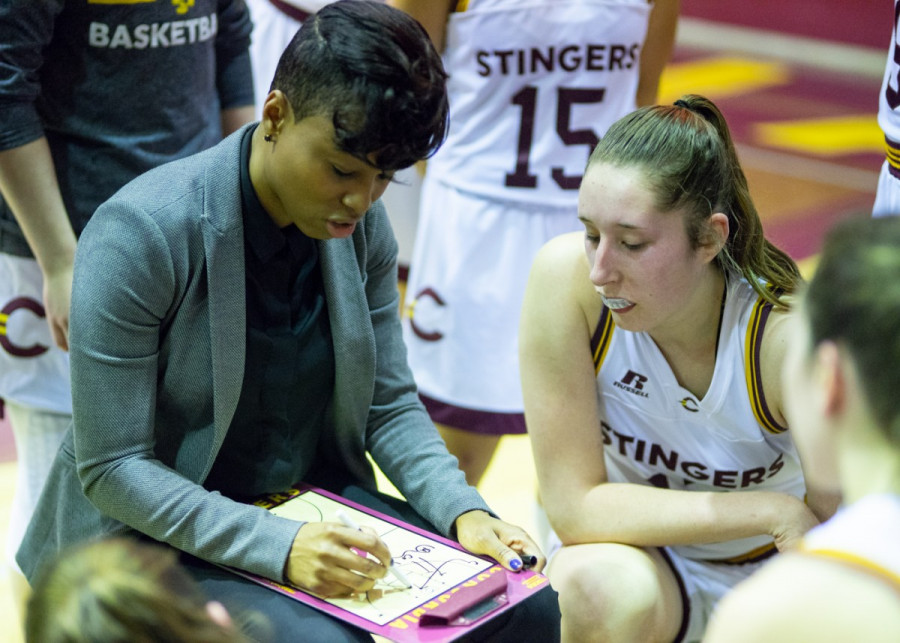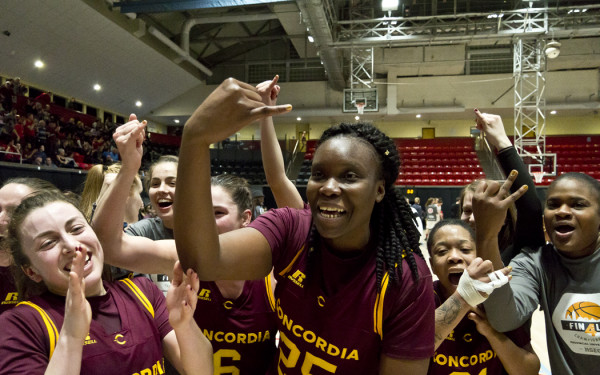Tenicha Gittens chosen for The Black Female Coach Mentorship Program
Stingers women’s basketball coach hopes to change Canadian coaching landscape for the better
Earlier last week, head coach of the women’s Stingers basketball team, Tenicha Gittens, met with one of her two mentees for the first time for The Black Female Coach Mentorship Program, a mentorship program in its inaugural year.
The BFCMP is a program that partners 12 coaches from across Canada to mentor 17 aspiring Black women coaches. The disciplines of the applicants that range from basketball to equestrian sports.
“We had over 40 applicants. This just proves that this is something that is in need and that is long overdue,” said Gittens.
For her, it’s clear that the benefit of the mentorship program goes beyond giving practical coaching tips, it’s about representation.
“When you see people before you doing it, I think there’s so much strength and magic in that like, ‘Oh, I can really do that,’” she said. She hopes the young women come out of the program feeling like “I can absolutely do this because I can see it everyday on the sidelines [...] and now I’m in direct contact with someone who is actually doing it who looks like me.”
CBC sports looked into the key positions of the 56 Canadian universities that partake in U Sports. BIPOC coaches only held 10 per cent of the 400 positions. Of those schools, only one of them has a non-white athletic director which is the highest position that can be held in Canadian university level athletics.
One of Gittens’ athletes, Nelly Owusu, recently came to her because she wanted to send an email to the RSEQ about their silence on racism and their performative actions.
With the support from Gittens, Owusu wrote an open letter to the RSEQ and posted it on social media.
“When my players come into my office there’s no question whether I stand with them or not, so long as it’s the right thing,” Gittens said.
These situations are another reason why Gittens find representation so important. She says that for Black athletes who have non-blackcoaches, it can be more difficult to bring up conversations related to race.
“When my players come into my office there’s no question whether I stand with them or not, so long as it’s the right thing.” – Tenicha Gittens
“It’s not that other coaches won’t support them, but there’s something about being uncomfortable approaching someone that doesn’t look like you,” she said.
When Gittens was choosing her mentees among the applicants, it went beyond who seemed to need the most help.
“I looked at where they are currently right now in terms of do they have the support that they need? Do they have the representation around them?” she said.
For Gittens it goes beyond check-ins and crossing tasks off of a to-do list, it’s about developing authentic connections.
“I just want to be a source for them, I want to be able to be their friend and be their confidant. For anything they need, I just want to be able to be that person,” she said. “It’s about what they hope to achieve and hopefully together we can help them realize some of those dreams and aspirations.”
While only a handful of young women were selected for the program’s first year, she hopes its reach goes beyond those chosen.
“We hope that it grows and that we can influence others to take on those roles,” she said. While this is the first mentorship of its kind in Canada, she says that there are a lot of coaches in different disciplines who aren’t part of the program but would be great mentors to aspiring coaches. “Even if they don’t get selected for this particular program, go out and seek mentorship because it’s out there.”




_600_375_90_s_c1.jpg)
_600_375_90_s_c1.jpg)
3_600_375_90_s_c1.jpg)
